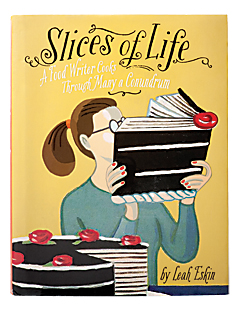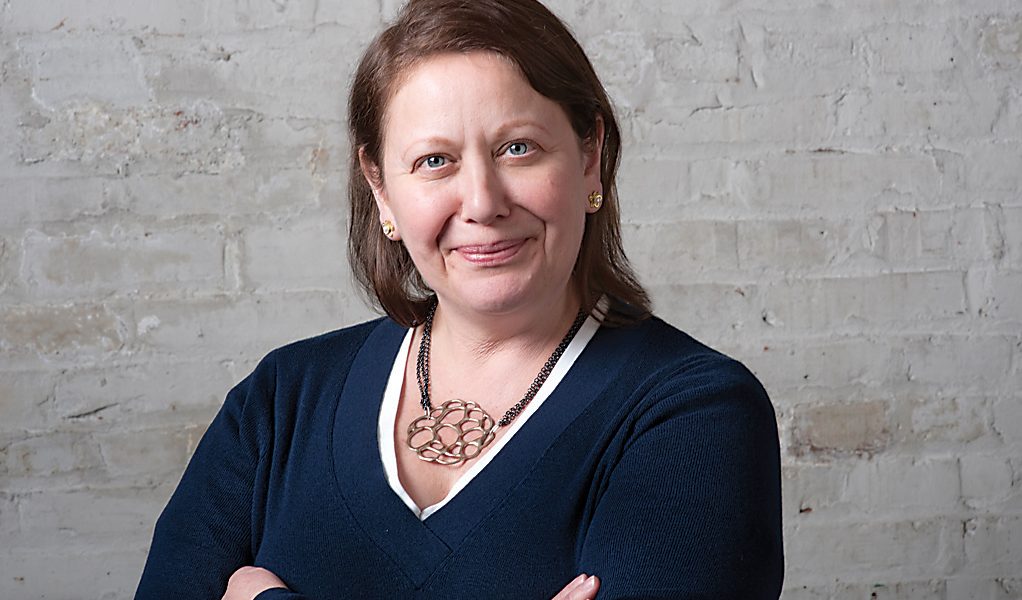Food & Drink
For the Love of Food
A local writer shares the ups and downs of her life through cooking and recipes.
Leah Eskin—a Pulitzer-Prize nominated author of the Chicago Tribune’s food column “Home on the Range” (and a Baltimore transplant!)—released
her memoir Slices of Life: A Food Writer Cooks through Many a Conundrum on March 25.
 The book blends her essays and recipes into a delicious collection that’s as sweet as her honey apple tart. Eskin, who lives in Roland Park with her husband Bob Blau and her two chidren, ages 16 and 14, spoke to us about her new book, which will be available at amazon.com and Barnes & Noble.
The book blends her essays and recipes into a delicious collection that’s as sweet as her honey apple tart. Eskin, who lives in Roland Park with her husband Bob Blau and her two chidren, ages 16 and 14, spoke to us about her new book, which will be available at amazon.com and Barnes & Noble.
What’s a recipe in the book that people have consistently told you they loved/were surprised by?
Everyone loves the pot roast. When I was little, my mom made it. Hers was best the second day, after the noodles and sauce had gotten friendly in the fridge. My approach encourages noodle/sauce canoodling right up front.
What are three things everyone should have in their kitchen?
A cast-iron skillet, a sharp chef’s knife, a good attitude.
What’s your favorite Maryland recipe?
Love crab cakes. Love Southsides [the cocktail]. Love oysters. I’ve got recipes for all three in the book, though natives might find them suspect.
Is there any dish you simply cannot master, no matter how many times you try?
Steak scares me. I keep hoping my husband will take up the cause.
What is your favorite recipe in the book?
Chocolate-chip cookies. It’s my favorite recipe in life. And my version, while only slightly different from the standard, is easier [melt the butter], more convenient [freeze the dough], and better [it guarantees soft, pliant cookies]. What’s not to like?
The essays are written in a variety of styles and tenses. What’s your most natural voice when you write?
I like that “essay” means “try.” I’ve tried first, second, and third person; past, present, and future. For an essay on gnocchi, I tried using every word that begins with “gn.” The challenge with the book was weaving them together into a narrative, a memoir of adulthood. Over the course of 200 recipes, I raise two children, endure one dog, tend one marriage, and sigh through many a goodbye. I puzzle over my usual preoccupations: odd words, dark chocolate, and the ideal kitchen plan.
What’s something you really hope the reader will come away knowing about you and the food you make?
I’m not one for complicated. I like simple ingredients and simple tools and simple recipes. I think cooking is more about pleasure than about showing off.
Whose cookbooks and recipes do you like to use?
Love Dorie Greenspan, Rick Bayless, Patricia Wells, Alice Waters, Gale Gand. I also consult the classics: Pierre Franey, Julia Child, the Joy of Cooking. They inspire confidence.
One theme of the book is that food is something you can make no matter how busy you are or what problems you’re facing. How would you encourage someone who wants to start cooking but thinks they’re too busy?
Well, I’m certainly not advocating cooking, or anything else. The book can be read simply as a memoir. For people who want to cook, I’d say start simple. Noodles with butter is delicious and, as my kids have discovered, tastes deliciously self-sufficient.
When you write your column, do you think of a recipe first and match it with a memory or story, or vice versa?
Usually the story comes first, then the recipe. Sometimes it’s the other way around, especially if I’ve already turned in the recipe. A deadline is a potent motivational tool.
